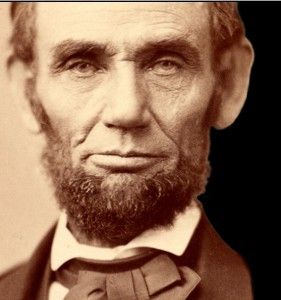 Today a great fire engulfs the southwest Georgia town of Americus, a Confederate hospital town housing thousands of soldiers and located near Andersonville Prison. Two city squares in the downtown district are destroyed by the fire, which causes damages of over $3,000,000. The lost buildings include many businesses, hospital buildings, warehouses and storerooms. Among the contents lost in the latter is a large amount of cotton and wheat, much of both crops being “tithes” collected by the Confederate government to support Southern armies.
Today a great fire engulfs the southwest Georgia town of Americus, a Confederate hospital town housing thousands of soldiers and located near Andersonville Prison. Two city squares in the downtown district are destroyed by the fire, which causes damages of over $3,000,000. The lost buildings include many businesses, hospital buildings, warehouses and storerooms. Among the contents lost in the latter is a large amount of cotton and wheat, much of both crops being “tithes” collected by the Confederate government to support Southern armies.
Among the leveled buildings is the courthouse, previously used by the First Baptist Church of Americus prior to congregation’s construction of its own meeting house.
Reports of the fire circulate throughout the Confederacy, including in the nation’s capital of Richmond, Virginia.
Meanwhile, this week’s North Carolina Baptist Biblical Recorder publishes notice of the May 1 death of William C. Duncan, formerly pastor of the Coliseum Baptist Church of New Orleans, Louisiana. In addition to pastoring the church, Duncan founded the Southwestern Baptist Chronicle weekly newspaper, taught Greek and Latin at the University of Louisiana, and authored several volumes, including History of the Baptists for the First Two Centuries of the Christian Era (1857).
Southern Baptist newspaper editors, however, do not have much good to say about the deceased reverend, as Duncan had been a Union supporter. In 1861 the reverend’s openly Unionist sympathies forced his relocation to the North. Following Union occupation of the city of New Orleans in the summer of 1862, Duncan returned and worked for the reunion of Louisiana to the United States until his death.
Hence, North Carolina editor J. D. Hufham quotes from another Baptist paper, South Carolina’s Confederate Baptist, in condemnation of Duncan:
In an evil hour, he yielded to the seductions of the enemy, and deserted the cause of the Confederacy. Association with the creatures that took the place of his former flock was enough to crush his [?] spirit and wear away his life. It was a sad mistake. He was a ripe scholar, a genial companion, and to all but his country true…
….it is a melancholy reflection that a name once honored among us should hereafter be associated with the crime of treason….
The “cause” to which Duncan turned traitor is that of white supremacy and black slavery. In this regard, Hufham places the Baptist preacher in the same category as the former Baptist that is now president of the United States, echoing, on the same page, the words of Georgia Baptist minister Nathaniel M. Crawford (published in the Baptist Banner of Georgia) concerning “the manner in which the christian (?) people of the North slavishly play court to Mr. Lincoln“:
The ecclesiastical organizations of all the denominations in the United States have sunk to the lowest depth of infamy in pandering to the despotism which they appear to worship. If either should reproach the others, the raven would chide blackness.
Never does it seem to occur to Baptist newspaper editors of the South that they are the defenders of gross and blatant evil in this war.
Indeed, perhaps by now they, so thoroughly over the decades having capitulated to the culture of the South, are incapable of recognizing the rank evil upon which their beloved nation is founded.
Sources: “The Fire in Americus, Georgia,” Richmond Daily Dispatch, September 8, 1864 (link); “Americus, Georgia,” New Georgia Encyclopedia (link); Alan Anderson, Remembering Americus, Georgia: Essays on Southern Life, Charleston, SC: The History Press, 2006, p. 79 (link); John Smith Kendall, History of New Orleans, Volume 2, Chicago: Lewis Publishing Company, 1922, p. 714 (link); Henry Rightor, editor, Standard History of New Orleans, Louisiana, Chicago: Lewis Publishing Company, 1900, p. 504 (link); “Duncan, William Cecil,” in James Grant Wilson, John Fiske, editors, Appleton’s Cyclopaedia of American Biography, Volume 2, New York: D. Appleton, 1888, pp. 256-257 (link); “Rev. W. C. Duncan” and “Degraded,” Biblical Recorder, August 31, 1864 (link)


